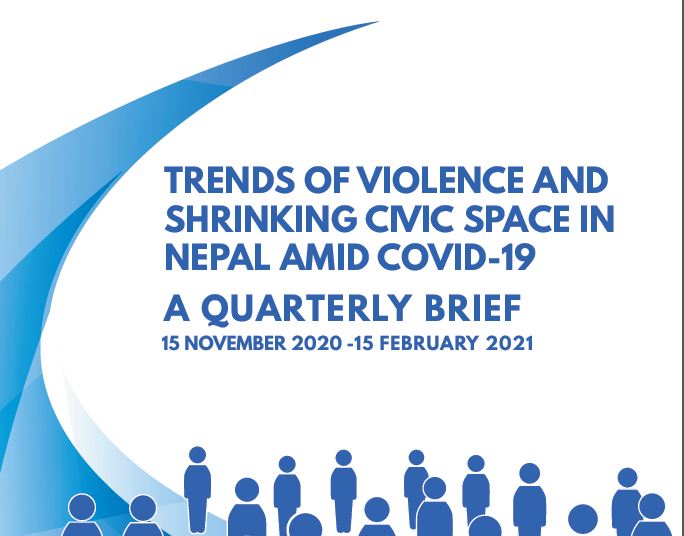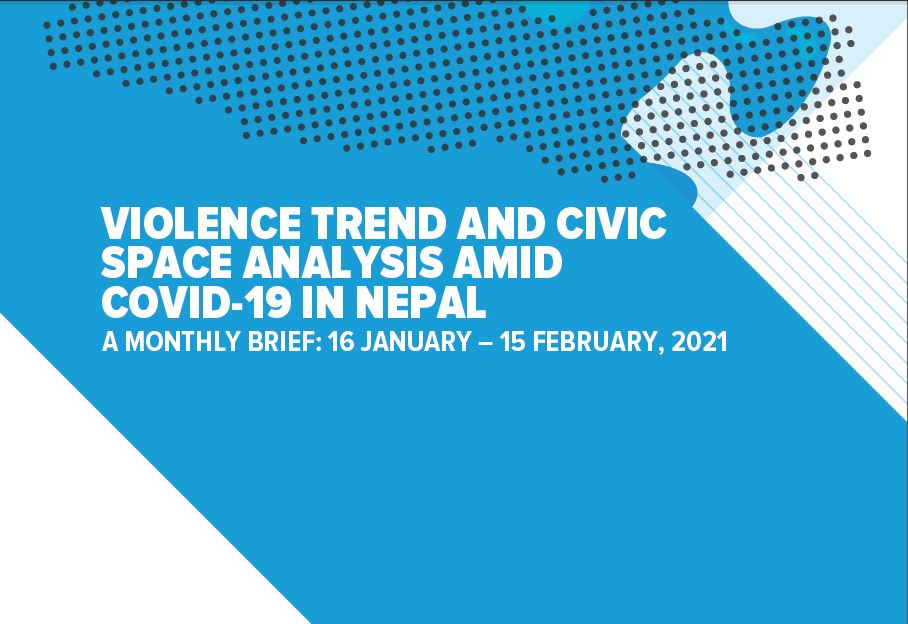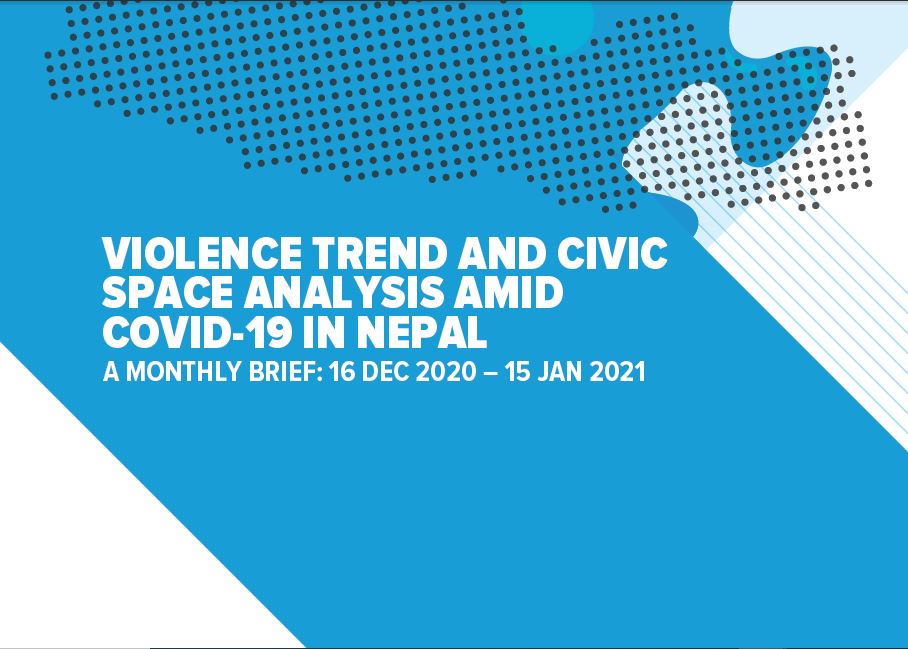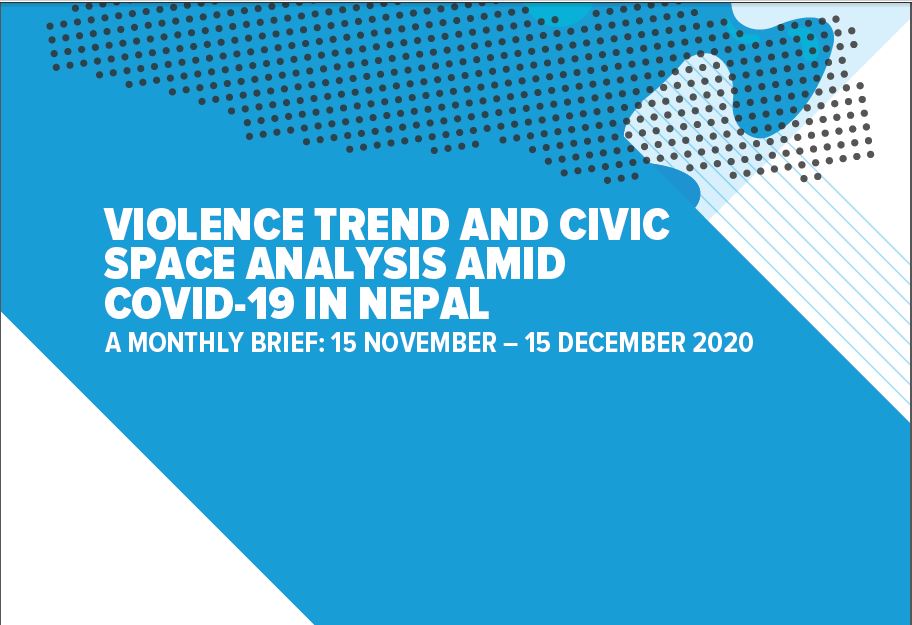Incident Reports
Wilful amnesia- Deepak Thapa' s Oped on HRD Issue
2018-06-14
Nepal
This year marks the centenary of the founding of the Mahila Samiti by Dibya Koirala, Yogmaya Devi, Mohan Kumari Koirala and Purna Kumari Adhikari. The activities of the Mahila Samiti ceased with the exile to India of Koirala’s husband, Krishna Prasad, who is now better known as the father of three of Nepal’s prime ministers. But, it is a sad commentary on the state of Nepal’s politics that 100 years after Nepali women began organizing for their rights, Prime Minister KP Oli resorted to telling off women leaders from his party asking for a 33 percent share in the party’s decision-making bodies—as decreed by law—not to be led on by NGOs.
Soon after, Bal Krishna Dhungel, serving a life sentence for a murder, was released for ‘good behaviour’. He, too, vented his anger against human rights activists and blamed them for his jail stint. These are but a couple of prominent examples of the demonstration of the non-government sector that is now in full swing, and appears to be the culmination of the concerted attacks on the service-delivery part of this sector that went on during the Maoist ‘People’s War’. As recipients of funds from mainly western sources, it was understandable that NGOs would be targeted by the ostensibly ideologically driven Maoists. Except that, NGOs that managed to work out a modus vivendi, consisting mainly of cash transfers to the local Maoists from the said organizations and/or their staff, were allowed to operate even at the height of the insurgency. But that is a story for another time.
Choosing to forget
It should be noted though that the Maoists seem to conveniently dis-remember that had it not been for human rights NGOs, there is a high likelihood that a number of them would not have survived today. Despite the ever-present danger to their own selves from the state security forces, NGO activists managed to not only build a credible database of what transpired during those dark times in Nepal’s recent history, but also constantly prodded the government to remember its responsibilities under the country’s constitution and international commitments.
I will take the example of one such NGO, Amnesty International (AI), for the simple reason that it is perhaps the best known in the world. (Disclosure: I am not a member of AI and nor have I ever worked for it in any capacity.) In early 2002, with the country under a state of emergency and the Nepali army running amok, the NGO, Amnesty International, released the report, Nepal: A spiraling human rights crisis—perhaps the first major document by a human rights organizations focusing solely on the Maoist conflict. According to its opening lines, the report ‘provides evidence of unlawful killings, “disappearances”, torture and arbitrary arrest and detention under various security laws by police and army personnel since the CPN (Maoist) declared “people’s war”’. Although it also calls upon ‘the CPN (Maoist) to at all times respect civilians…in line with applicable international humanitarian law standards’, of the 20 recommendations made at the end of the report, 18 begin with the phrase ‘The government should’, one with ‘Nepal should’ and another with ‘The prohibition of unlawful killings, including extrajudicial executions…’ In short, Amnesty was taking the government to task for failing to respect the human rights of the Maoists, real or suspected.
It is through the work of such NGOs that led to the unnerving finding that in the years 2002, 2003 and 2005, Nepal experienced the highest number of disappearances anywhere in the world. It was the successful advocacy efforts against a recalcitrant royal government with such irrefutable facts that finally led to the Office of the United Nations High Commissioner for Human Rights (OHCHR) being set up in Nepal in 2005. There have been many misgivings among certain circles in Nepal about the later work that OHCHR engaged in, but it would be hard to deny that had it not been for OHCHR the killings of Maoists that had reportedly taken place in the army’s Bhairabnath Battalion might have remained in the realm of hearsay and rumour. All the probing around by OHCHR and other NGOs could have possibly saved the lives of many imprisoned there.
Indebtedness
Take this, for instance. In September 2004, AI wrote to the head of the army’s human rights cell, the contents of which was soon made public as is standard practice, in which it expressed ‘concern about the safety’ of, among others, one ‘Bina Magar (aged 22)…believed to have been arrested in the Asan area of Kathmandu on 24 October 2003. She may have been arrested because she was a member of the All Nepal National Independent Students’ Union (Revolutionary) which is aligned to the CPN (Maoist). About three weeks later she was seen with security forces personnel in the Samakhusi area of Kathmandu. At around that time the family also received unofficial information that she was held at Bhairabnath army barracks...’
Bina Magar complained of being ‘repeatedly dunked in icy water in November and December and has severe sinus trouble’ in a news report after the peace process had begun and she had been released. ‘She feels uneasy and becomes restless and anxious in the evenings,’ continued the report. It says a lot about her spirit that just a few years later she managed to scale Mount Everest. She then married the son of Maoist supremo, Prachanda, and is currently the Minister for Water Supply and Sanitation.
That is the kind of debt the Maoists owe groups like AI, not that, I believe, any kind of gratitude is expected since such organisations will continue doing their work no matter what. I can still remember the first time I saw the cheaply produced duo-tone newsletter AI used to mail out from its offices in Colombo. I was in my mid-teens in the late 1970s and the Panchayat system was going strong. The postman had tossed the newsletter onto our grounds and since it was addressed to my father, I took it to him. My father warned me not to flash the newsletter around since it contained information about Nepali political prisoners as well at times.
Perhaps, as someone who worked for the government, he had reason to be somewhat careful at least about what he professed to read. Now, hearing the rant coming against NGOs from the highest circles of the government, I cannot help but wonder, whether over the long course of his incarceration, Prime Minister Oli also featured as a ‘prisoner of conscience’ in one or more of AI’s newsletters. Given the manner in which AI documents the status of political detenues, he certainly must have. That would have been another case of an NGO putting the Panchayat regime on notice about who it holds in its prisons. But all of that seems to be forgotten now.
National/Online Media
Related Reports
HRD Issues / Rautahat
Rautahat correspondent of Himalaya Television assaulted by crusher staff
August 22, 2023
HRD Issues / Saptari
Saptari journalist on continuous protest demanding protection of press freedom and action against attack on journalist
August 14, 2023
HRD Issues / Parbat
Arrest permission under cyber crime issued against journalist after raising issue of irregularity over social media
August 10, 2023
HRD Issues / Sunsari
Journalist issued threat in Sunsari over news report
Province 1, Sunsari, Barah
July 25, 2023
Related Trend Analysis
Analysis

THE NEPAL PEACE MONITOR ANNUAL REVIEW: 2020
October 25, 2021
Human Trafficking / LGBT+ Rights / GBV / Political / Children’s Rights / Senior Citizens’ Rights / HRD Issues / Human Rights / Interpersonal Violence / Governance / Covid-19 / Civic-Space / PwD





